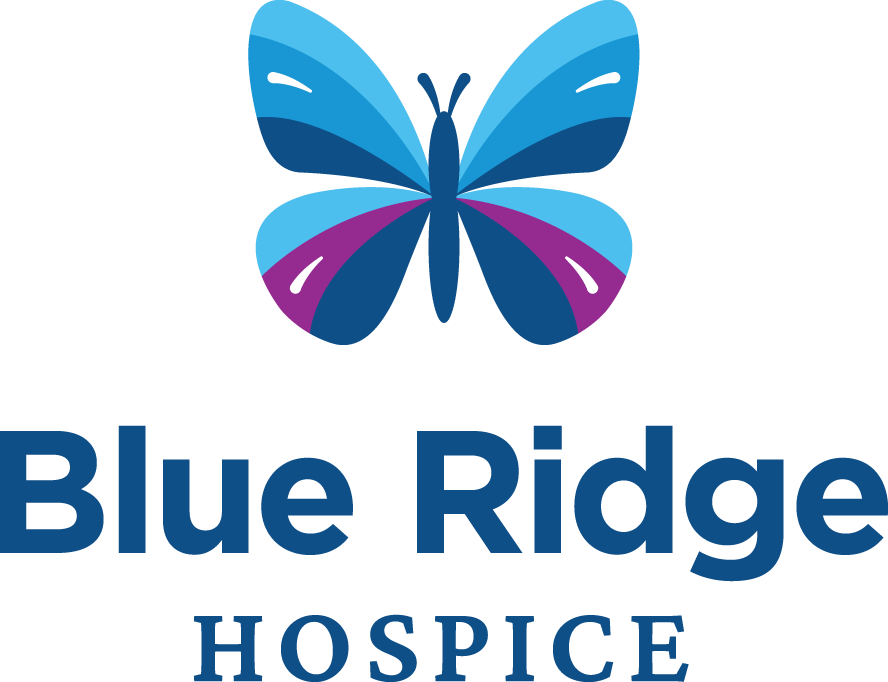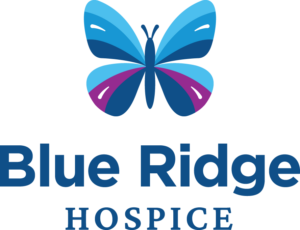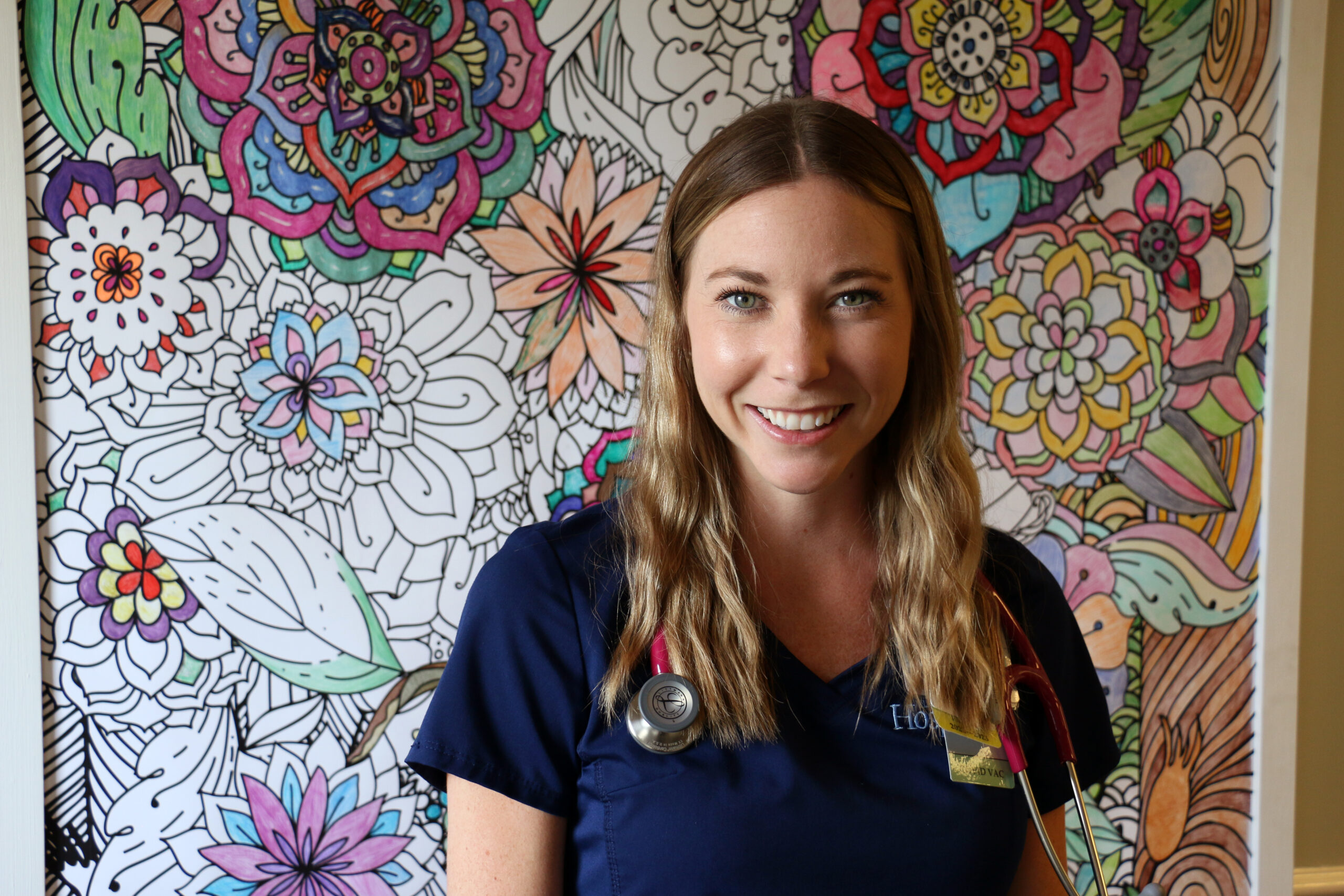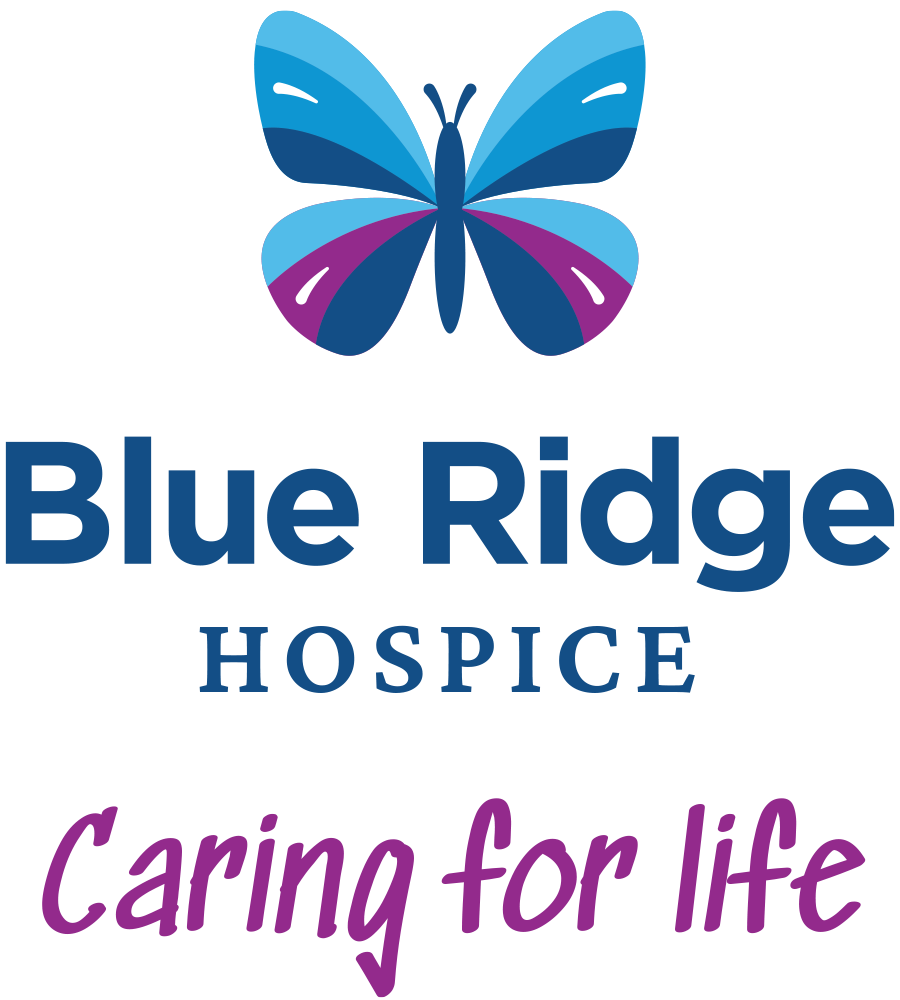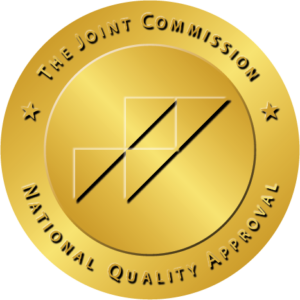When Paige works the day shift, she arrives at the Inpatient Care Center at Cork Street in Winchester, VA, around 7:45 am to begin her day at 8:00 am.
8:00 am: Preparing for the day
“The first thing one of us will do is count medications for each patient and inventory our stock to make sure the counts match our records. We’ll count medications again at the end of each day.”
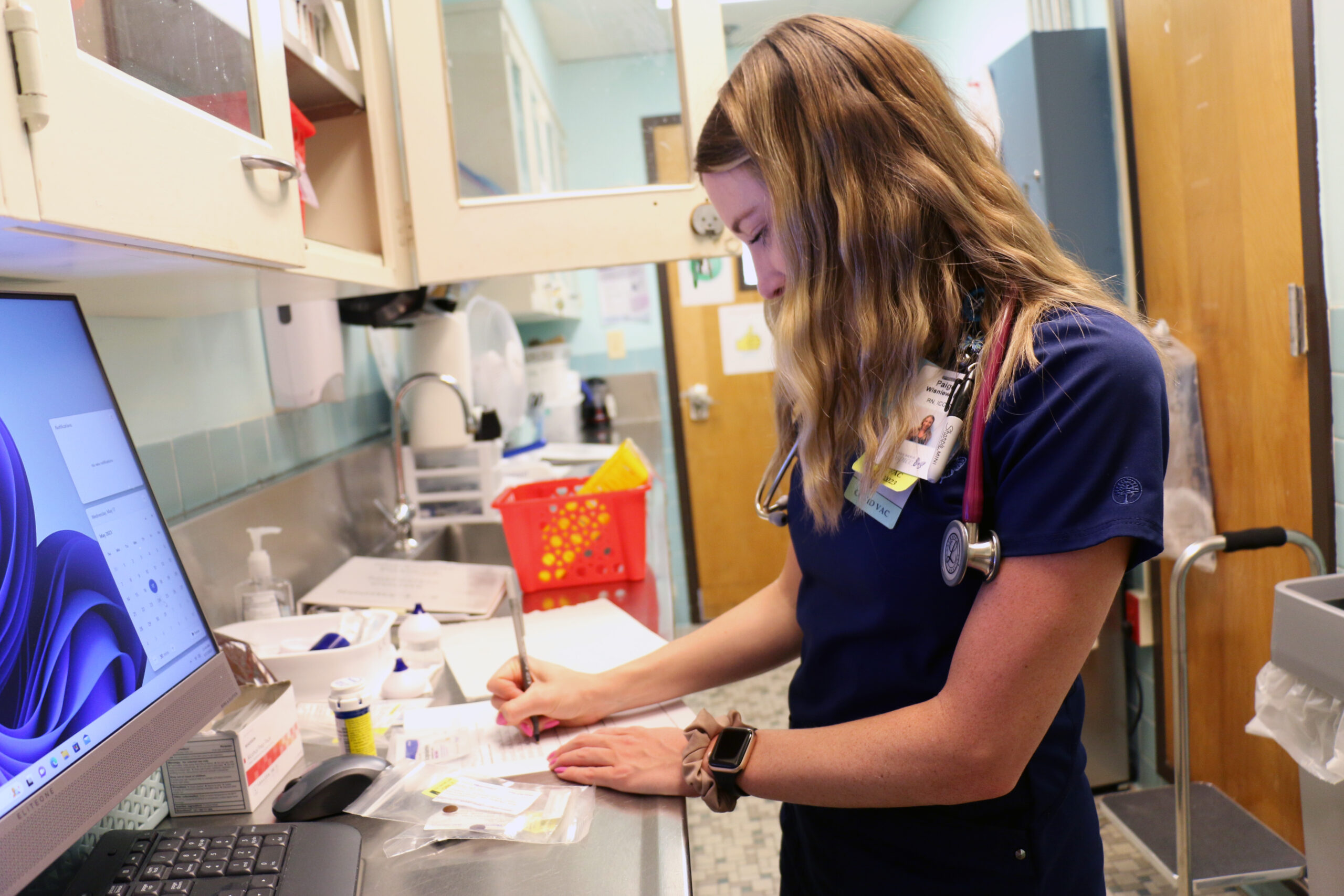
All of our patients' medicines, as well as all the medicines in stock, are counted twice a day to make sure the counts match our records.
Between 8:15 and 8:45 am Paige meets with one of the RNs who worked the night shift for a shift report.
“The RN coming off the night shift will tell me anything I need to know about how the patients are doing and give me a rundown on everything that happened during their shift. Sometimes a new patient comes in overnight, or medications are adjusted.
“The face-to-face reports each morning ensure that we are fully in the loop and able to hit the ground running in continuing care of our patients that day.”
Each RN on the floor will be assigned 2 or 3 patients to be primarily responsible for during their shift. Paige takes about 30 minutes each morning to prepare care for her patients for the day.
“I will go to my patient’s charts to see what times their medications are due throughout my shift so I can plan ahead. Medications are typically given every 4 hours. I also check to see if there is anything I need to bring to the attention of the hospice physician when they come to the Center for their daily rounds.”
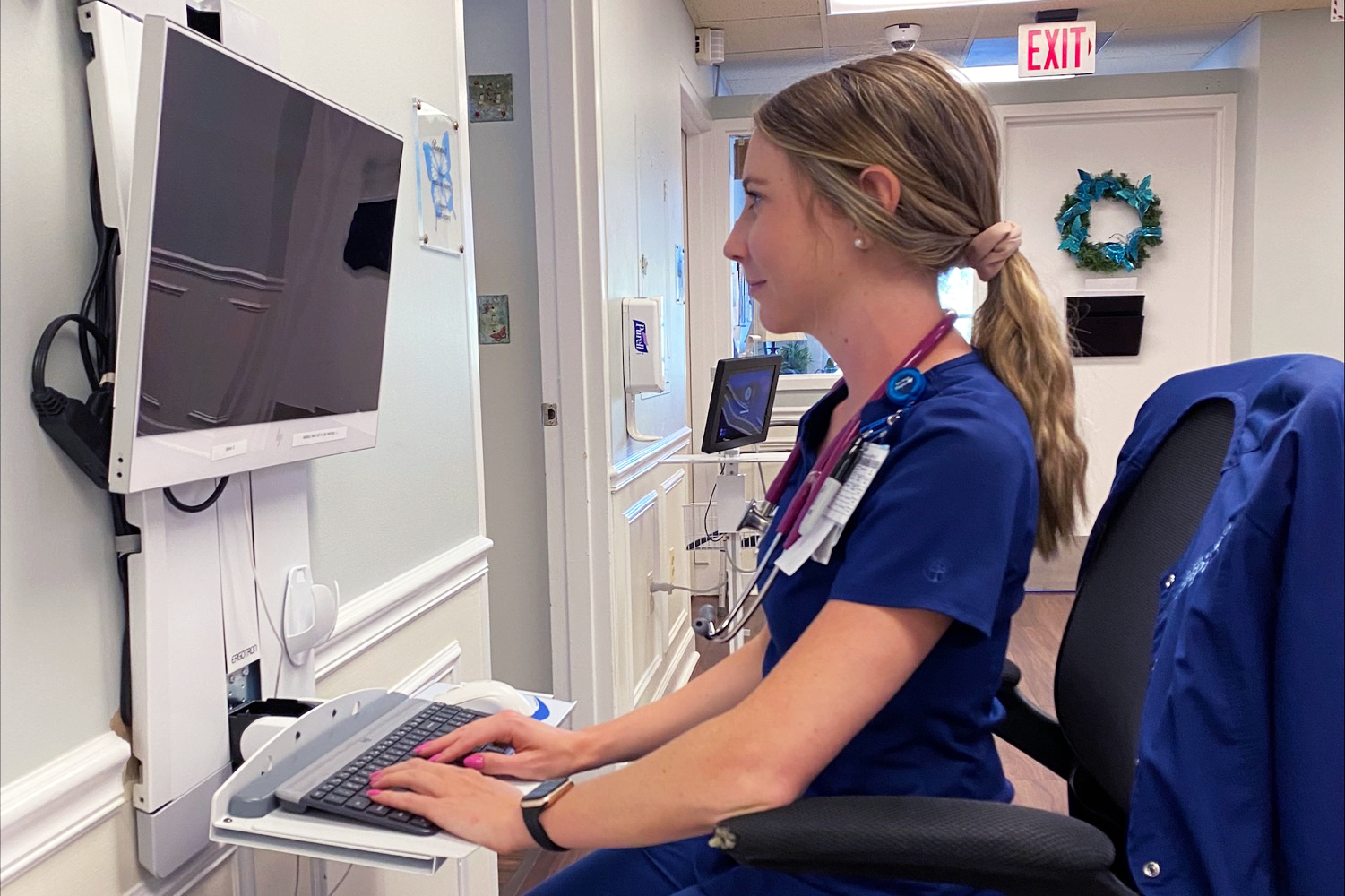
Patient charts are continuously updated every four hours.
9:15 am: Assessments & charting
“Then I do my assessments. I visit with each of my patients and listen to them, check their Foley catheter if they have one, look over their skin for anything that may need addressed, dress any wounds they may have, and reposition them if they are not able to do so themselves.
“We reposition patients frequently throughout the day to avoid sore muscles and bedsores.
“I track everything in the patient’s chart. In fact, we update each patient’s chart every 4 hours with the latest updates on how they are doing.”
“On weekdays, our chaplain Ken and Grief Counselor Christina will come up to the Center to check in with patients, families, and our staff. One of our Music Therapists might stop by to see a patient if Music Therapy is part of their care plan.”
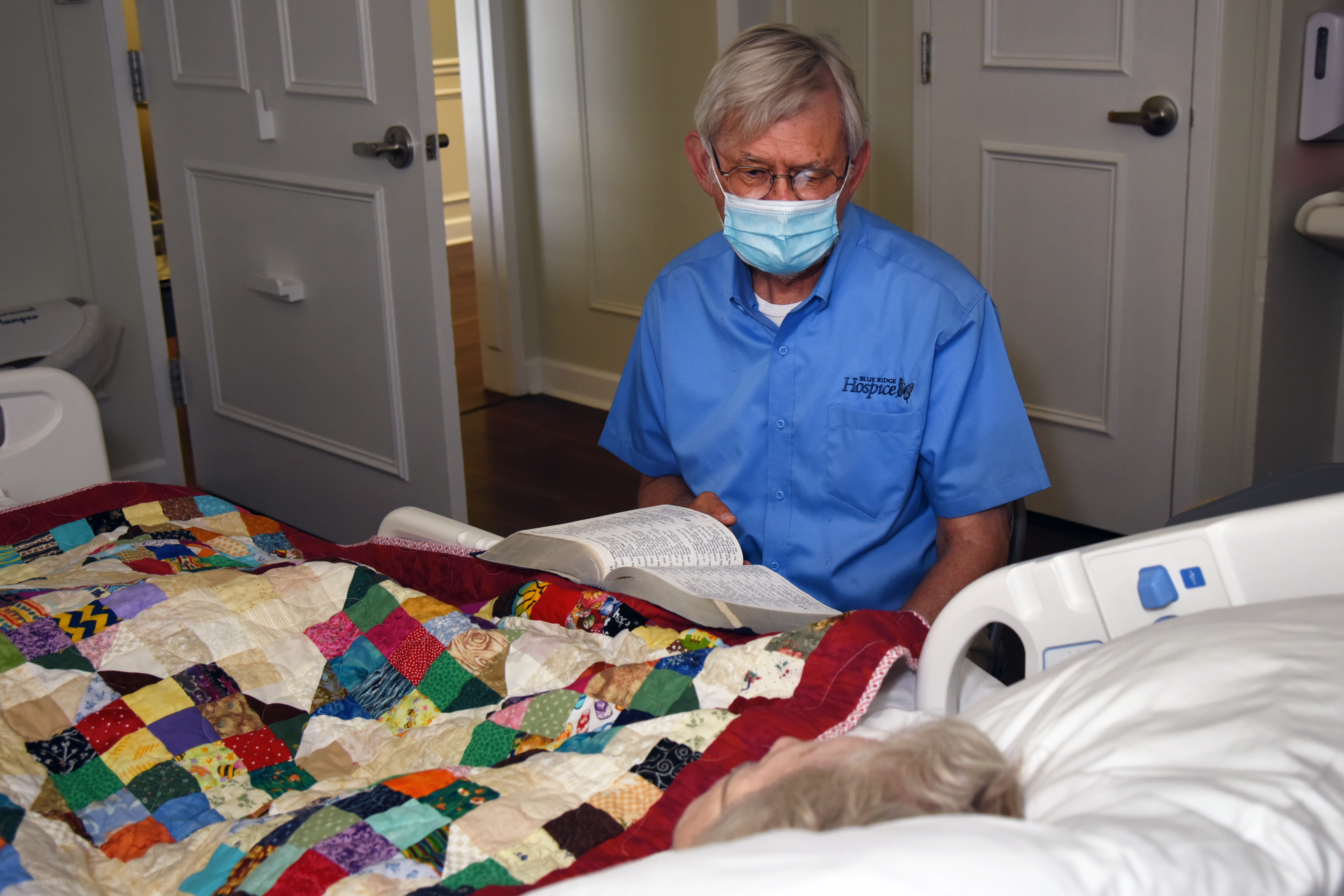
Blue Ridge Hospice's Chaplain Ken Patrick visits patients in the ICC daily if his schedule allows. Photo by Lauri Bridgeforth for Blue Ridge Hospice, 2022.
Hospice care is holistic care, which means that all our patients (whether they are at our Inpatient Care Center or at home) receive care from an interdisciplinary team including doctors, nurses, CNAs, social workers, chaplains, Music Therapists, and volunteers to address all medical, emotional, and spiritual needs a patient might have at the end of life.
“If I think one of my patients might benefit from Music Therapy, I’ll flag it for Jen, our full-time social worker at the Inpatient Care Center. Part of her role is to help coordinate care to meet the patient’s needs, whatever they might be. Jen is a rockstar – she can make almost anything happen!”
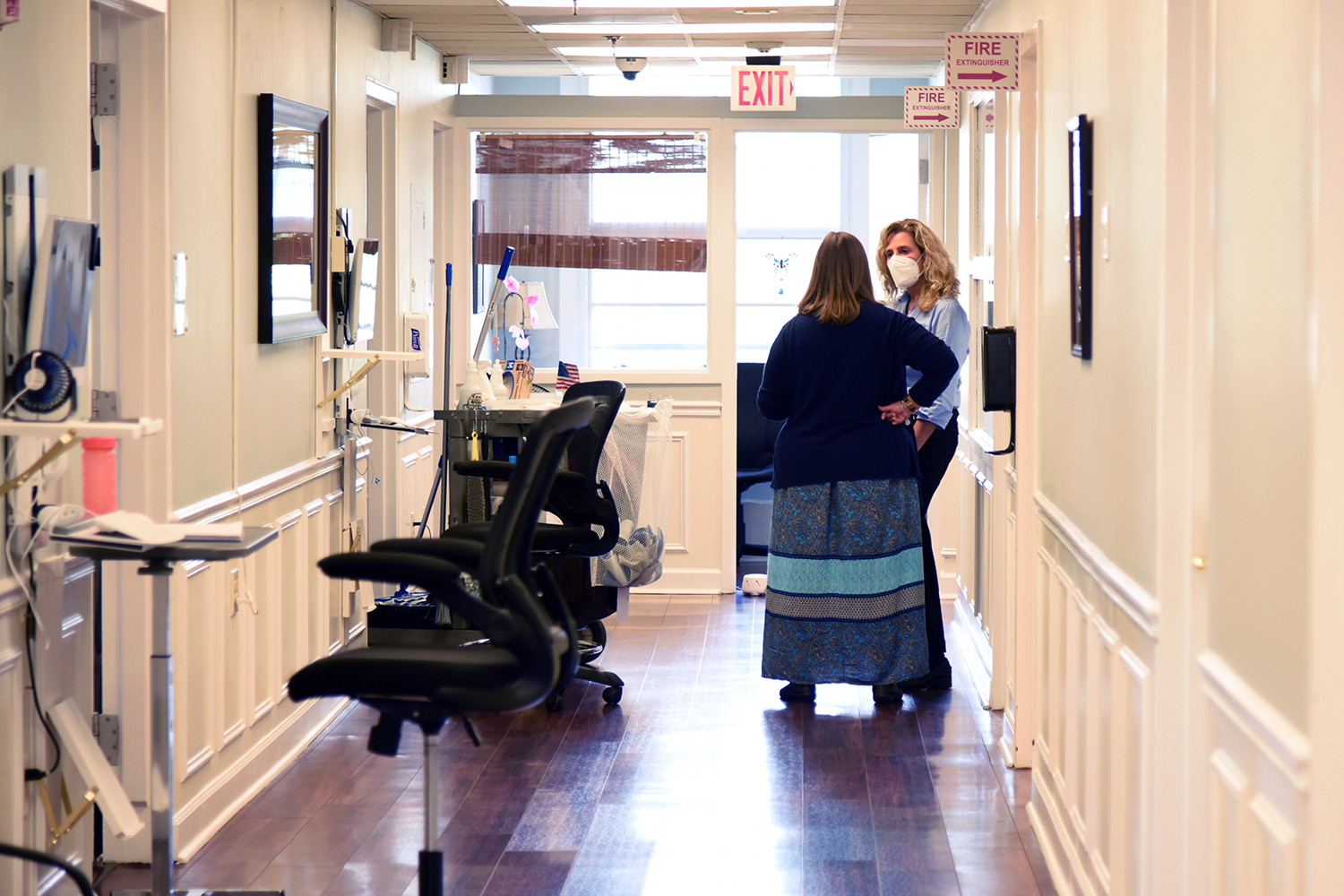
Blue Ridge Hospice's Social Worker Jen (left) confers with Dr. Landrio (right). Photo by Lauri Bridgeforth for Blue Ridge Hospice, 2022.
9:30 – 11:00 a: Rounding with Dr. Flynn or Dr. Landrio
“Between 9:30 am 11:00 am, the doctor will visit the Center to see the patients. We call this “rounding”. Depending on who is covering the Inpatient Care Center that day, Dr. Flynn or Dr. Landrio will sit down with all the nurses and our Social Worker Jen to touch base on each patient. Are any patients experiencing pain, anxiety, or agitation? Are any patients going home today? The doctor will then visit the patients.
“Dr. Flynn or Dr. Landrio will let me know if my patient needs anything or if I need to put in a new prescription for them. I’ll put in an order to the pharmacy if we don’t have the medication in stock.”
Medications are delivered to the Inpatient Care Center every day at 11:00 am and 3:00 pm from the pharmacy at Winchester Medical Center.
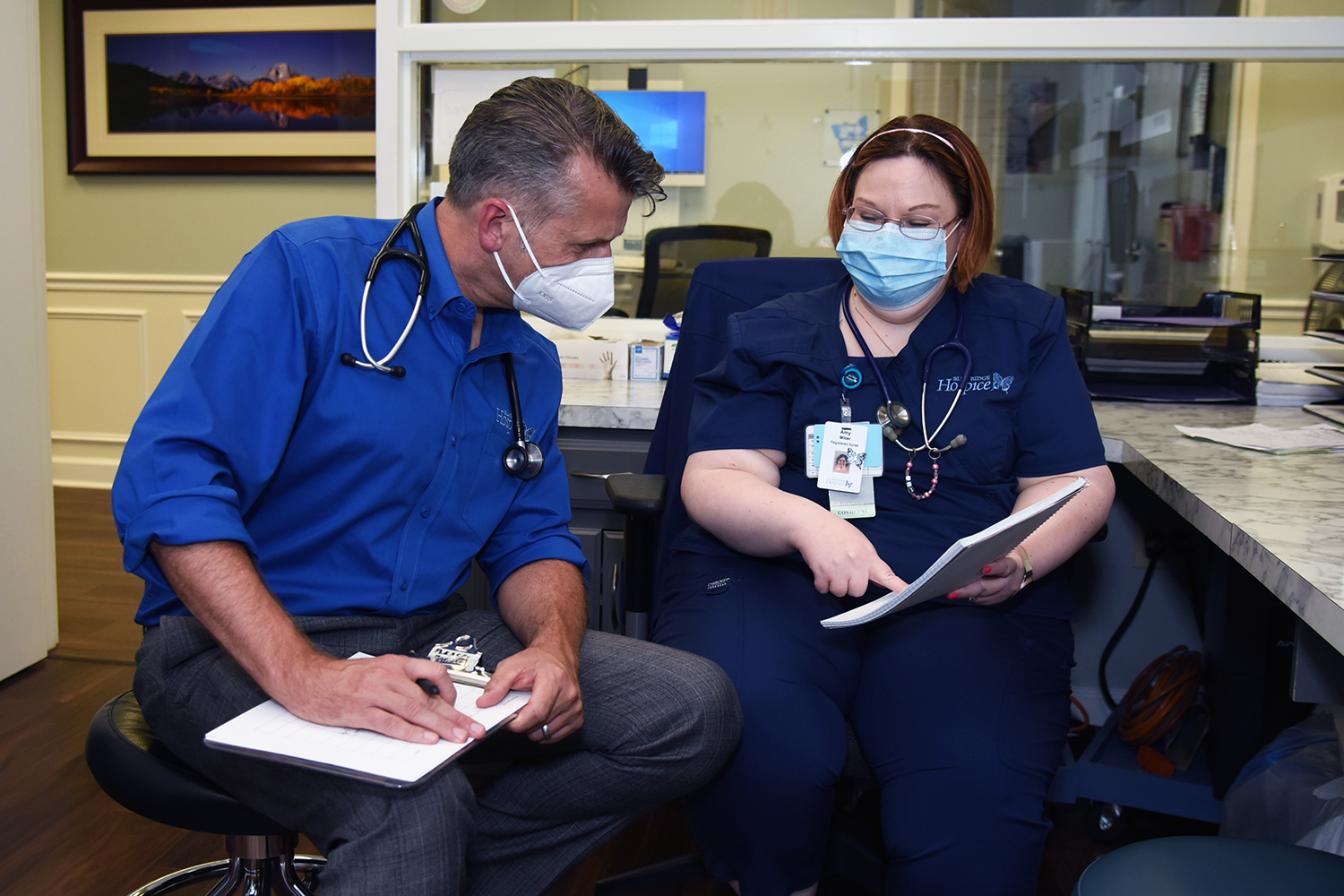
During rounding, the doctor assigned to the Inpatient Care Center that day connects with the nursing staff for an update on each patient. Photo by Lauri Bridgeforth for Blue Ridge Hospice, 2022.
12:00 – 8:00 pm: Lunch, afternoon activities, and shift change
“Around noon, we serve patients lunch. Meals are delivered from Winchester Medical Center and loaded onto the warming tray unit or stored in the fridge until lunchtime. Patients receive 3 meals a day. The night shift helps with breakfast and the day shift covers lunch and dinner.”
When patients have their meals and there is nothing else that needs taken care of immediately, Paige will take her 30-minute lunch break.
“The rest of my shift, I follow through on my patient’s care plan. I give them their medications when due, update charts, reposition them at least every 3 hours, prepare meals and help feed them if needed, and help our CNAs with baths. All patients are bathed daily at the Inpatient Care Center.
“If there is time and the weather allows it, I’ll take my patients outside for a walk or just to get some fresh air. I might call a patient’s family member if they aren’t there that day to give them an update on how their loved one is doing. We also do the patients’ laundry. We like for patients to wear their own clothes rather than a hospital gown to feel most at home and we make sure they have something clean to wear.”
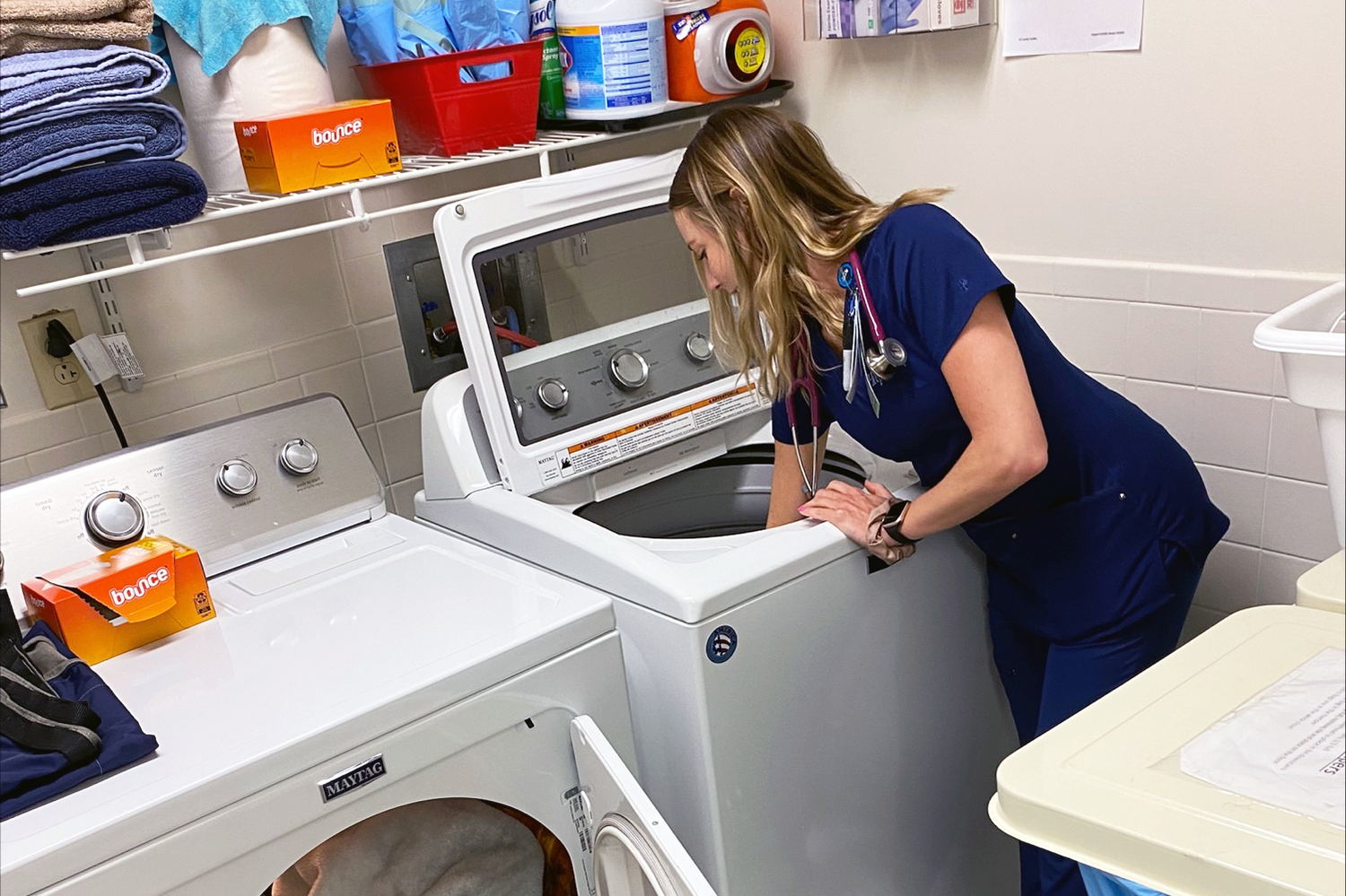
The team at the Inpatient Care Center takes takes care of the patient's laundry to make sure they have something clean to wear at all times.
“We do a lot of education at the Inpatient Care Center. The patient’s family will visit or stay with the patient and have questions about what might happen or how much longer we estimate their loved one has left. Part of our jobs at the Center is to support the families during the difficult time they are in.”
A patient’s family is always welcome to visit or stay with their loved one at the Inpatient Care Center. One person can stay with the patient overnight, and visiting hours for others are from 7:00 am to 9:00 pm. We limit the number of people allowed in a patient’s room at the same time to 3. This is because of the size of the rooms and not to impede care. When a patient is actively dying, the staff may allow more visitors in the room or visitors outside of visiting hours as they deem safe and appropriate.
“The team also supports each other. Working at the Inpatient Care Center can be stressful and difficult. We see patients of all ages who are experiencing out of control pain and agitation or anxiety, and many patients live their final days with us.
“As a team, we make sure to divide up the work equally, help each other when we can, and process our own feelings of grief and loss together.”
At the end of the day, patients are served dinner, the team counts and distributes medications, and the incoming night shift team get a shift report from the day shift team.
